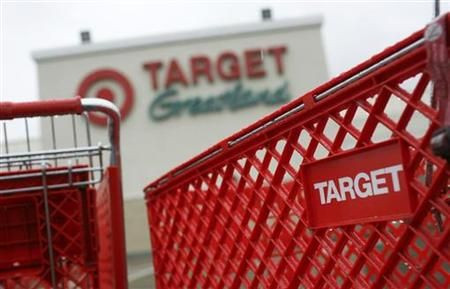Target Vs. Wal-Mart: Target Wins on Pricing, Barely, And Probably Not For Long

It seems that Target Corporation (NYSE:TGT), the second-largest U.S. retailer, is doing something right. After beating market expectations earlier this month with its second-quarter earnings, it beat industry leader Wal-Mart Stores Inc. (NYSE:WMT) in the competition for lowest prices.
And for the first time since October, Target has managed to have better pricing, albeit only slightly, and only based on a basket of 150 similar products offered at both chains.
According to Bloomberg Industries, Target has edged out Wal-Mart this month by a whopping 0.46 points. In other words, according to the survey, $100 worth of Wal-Mart stuff would cost $99.54 at Target.
According to the survey, this 46 cents per Benjamin is the widest margin by which Target has managed to beat the retail behemoth of Bentonville, Ark., which typically retains the No. 1 slot for the lowest price points of the brick-and-mortars.
For its part, a Wal-Mart representative dismissed the finding as a fluke. "Pricing surveys will always reflect some differences," Wal-Mart spokesperson Deisha Galberth Barnett told Bloomberg.
While 46 cents for every $100 is hardly a cost savings that would get consumers to switch preferences, it does suggest Target is playing hardball in the price war against its primary competitor, and in some cases winning.
One reason for Target's ability to remain price competitive is food costs; it narrowed Wal-Mart's price advantage from 4.5 points last month to 1.35 points. Much of that gap-narrowing occurred with back-to-school promotions and isn't likely to stand.
Still, it shows Target's move to incorporate general grocery items, including fresh foods, is working.
Target began introducing fresh foods to 350 stores in 2010 after testing the so-called PFresh model at its general-merchandise stores in Minneapolis, where the company is headquartered. PFresh is now a fixture in more than 1,000 of its 1,772 stores. The company says it costs between $2 million and $4 million per store to implement the PFresh model.
The company's stock price has climbed 27 percent since the middle of 2010 and it reported better-then-expected second-quarter results of $1.06 earnings per share, which was higher than the Zacks Consensus Estimate of $1.01. Target shares fell 60 cents, down to $63.08, on Thursday. The stock started the year at $51.22.
© Copyright IBTimes 2024. All rights reserved.






















